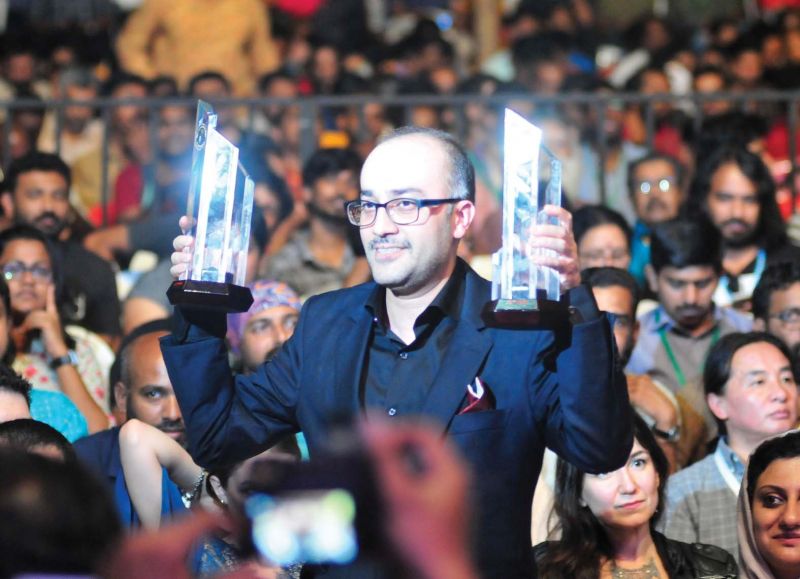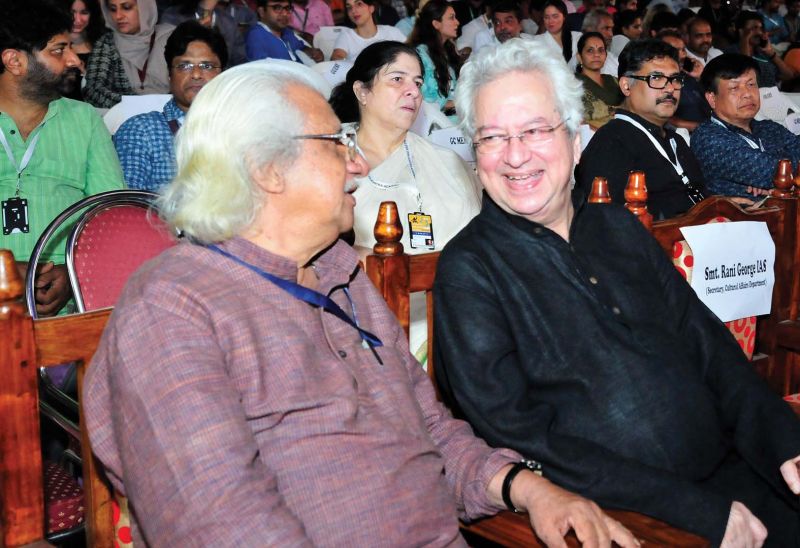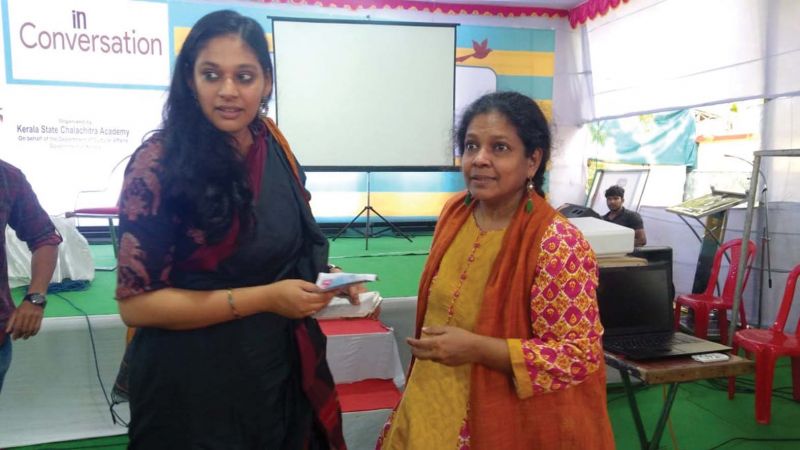Curtains on 23rd International Film Festival of Kerala

Thiruvananthapuram: The week-long movie extravaganza came to a colourful end here on Thursday with Iranian filmmaker Rouhallah Hejazi winning the Golden Crow Pheasant Award for the best film for his movie ‘Dark Room.’ Lijo Jose Pellissery received the Silver Crow Pheasant for best director for ‘EE.Maa.Yove’ and the NETPA Award for best Asian film in the competition.
Chief Minister Pinarayi Vijayan, who inaugurated the closing ceremony of the 23rd International Film Festival of Kerala (IFFK) at Nisagandhi Auditorium, said that the unity among all sections, including organisers and art lovers, displayed in the film festival will be a boost for rebuilding Kerala after the damage suffered by the state in the August floods.
He said that as in the flood-hit days, active free volunteering especially from youths helped the successful conduct of a large event like the film festival. He added that the state places its hope on this generation while engaging in rebuilding after the floods. Mr Vijayan appreciated the effort of the youngsters who provided free food for delegates during the hartal day. He also presented the awards to the winners.
 Iranian filmmaker Rouhallah Hejazi after winning the Golden Crow Pheasant Award at the International Film Festival of Kerala in Thiruvananthapuram on Thursday. (A.V. MUZAFAR)
Iranian filmmaker Rouhallah Hejazi after winning the Golden Crow Pheasant Award at the International Film Festival of Kerala in Thiruvananthapuram on Thursday. (A.V. MUZAFAR)
Anamika Haksar received the Silver Crow Pheasant for best debut director for ‘Taking the Horse to Eat Jalebis’ and a special jury mention for its cinematographer Saumyanand Sahi. Beatriz Seigner received a special jury mention for ‘The Silence’.
Ee.Maa.Yove also won the audience poll as it garnered the most number of votes from the delegates.
Around 160 films from around the world were screened at the festival. The 24th edition of the IFFK will be held here from December 6 to 13, 2019.
 Filmmakers Adoor Gopalakrishnan and Kumar Shahani at the 23rd International Film Festival of Kerala in Thiruvananthapuram on Thursday.(A.V. MUZAFAR)
Filmmakers Adoor Gopalakrishnan and Kumar Shahani at the 23rd International Film Festival of Kerala in Thiruvananthapuram on Thursday.(A.V. MUZAFAR)
I avoid bad Sinhala, good Tamil binary: Sumathy Sivamohan
When a Sri Lankan filmmaker says that she consciously avoids the “bad Sinhala, good Tamil binary” in her films, one is bound to look up her identity. IFFK International Jury member Sumathy Sivamohan, who said this during 23rd IFFK’s final ‘In Conversation’ segment, is a Tamil-speaking Sri Lankan.
Until 2017, she has made movies in Tamil. ‘Sons and Fathers’, released in 2017, is her only Sinhalese movie. Why then criticise films which put Tamil and Sinhala people in black and white? She said she chose the nuanced narrative to the easier one, purposely.
“There are many films, which show Tamil people to be all about suffering. It is boring for me. It does not offer hope to the Tamil community. It does not talk about hope,” she said.
 Filmmaker Sudha K. F. and Sumathy Sivamohan
Filmmaker Sudha K. F. and Sumathy Sivamohan
However, historically, when a minority community is involved in a conflict, they are the oppressed. There, naturally, emerges a binary, with the larger side as the oppressor.
DC has pointed out that media has chosen to side with the oppressed, in international conflicts. She said, “LTTE was the dominant faction among Tamils, but there was a lot of criticism from the Tamil community against LTTE which was not picked up by the media. Tamils did suffer, but their suffering was very complex. If we don’t deal with that complexity, we won’t have answers. LTTE had evicted Muslims from North Sri Lanka. I’m from the north. If you are talking about a minority community, why was this issue not covered at all?”
Her interviewer on the dais, filmmaker Sudha K. F., mentioned about a scene from her film in which a woman changes her style of wearing a sari from Sinhala to Tamil. Sudha said how this might have been included because Sumathy Sivamohan was a woman too. She replied, “I used the sari to show that you can change ethnicity by changing your sari. There’s nothing essential in your blood about being Sinhala or Tamil.”
There might be one aspect of her identity, which she didn’t mention in the session, but must have shaped her in many ways. She was the sister of Dr Rajani Thiranagama, a Sri Lankan human rights activist allegedly gunned down by LTTE. The doctor, who used to take care of wounded LTTE soldiers grew disillusioned and after years, started speaking against them.

